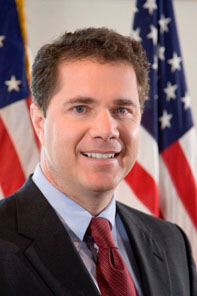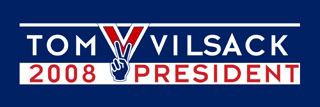The Caucuses' Greatest Hits: Revisited With New MaterialAlbum releases, like elections, happen on Tuesdays. And greatest hits sets always come out in the holiday season. Today, for example, we get the 43rd different version of a Rod Stewart compilation, for people who can't figure out free downloading.
With that in mind I dug into the vaults.
Two years ago, I wrote a history of the Iowa caucuses where I ranked the contests in order of significance. I've updated this classic collection, just like they always added a new song to the greatest hits album to make you buy the same songs over again. My two new tracks: an all-time classic and a cover version of a 1996 mid-chart hit.
Original text begins here with no changes except a couple strikethroughs and re-numbering. The 2008 sections are added where they belong. For now.
I’ve followed presidential nomination politics closely since 1980, extremely closely since 1984 (motivation: I was doing a humorous speech on the primaries in intercollegiate speech competition and needed to keep my jokes up to date), and from a front row seat as an Iowa party activist since 1990. Apply salt in grains or blocks as needed.
This is my first attempt at an ongoing series about the Iowa caucuses. The idea is mostly to focus on the kind of stuff the locals know but the national folks miss. This first time, though, my in-state perspective is just in the anecdotes.
First question: Do the caucuses REALLY matter? How important are they in terms of overall impact on the nominating contest, the presidency, and history? Here’s a look back, categorized and countdown formatted (with apologies to Casey Kasem). In the process of writing, I surprised myself and changed my own number one.
Not Worth The Airfare To Waterloo15. 1984 and 2004 Republican. The Republican tradition is to hold no presidential vote at all in incumbent re-elect years. Or in years when Republicans otherwise reside in the White House.
14. 1996 Democratic. The word went down from Des Moines to the Democratic county chairs: “The President would like a unanimous re-nomination and this WILL happen.” Self-starters in a couple lefty college precincts elected a
very small handful of Nader and Uncommitted protest delegates, but those results got delayed till past the newspaper deadline and thus went down the Memory Hole. Clinton came out and campaigned the final weekend, largely to step on the GOP story (Actually Being President trumps winning the caucus), but it was in basketball arenas, not chat n’ chews.
Only time I've ever caucused for the eventual nominee.
13. 1992 Republican. Ranked up a little because the inside the Des Moines Beltway (yes, non-Iowans, Des Moines
has a beltway) decision NOT to hold a vote while the Buchanan Brigade was tearing up New Hampshire was a strategic win for Bush Sr.
Ultimately Irrelevant12. 1992 Democratic. Hometown boy Tom Harkin runs and wins big, though not as big as it looks (that’ll be a later discussion). Paul Tsongas, already on the ground in Iowa, bails. A couple feints from Bob Kerrey and Jerry Brown but nothing serious. In the end, Iowa kept first place after `92 only because Harkin jumped on the winner’s bandwagon while the other rivals couldn’t hide their obvious contempt for Clinton. (Jerry Brown probably wrote himself in that November.) The long term importance of 1992 may be that Hillary Clinton didn’t have to shake hands and eat hotdish in towns like Courthouse Center and East Pole Bean. Comic relief: An Iowa City dorm precinct elected a Jimmy Carter delegate.
11. 2000 Both. On the Democratic side Al Gore beat Bill Bradley in what was merely the first moment in the overall national dynamic;
Dollar Bill made his stand on friendlier turf in New Hampshire. The truly significant GOP event was the summer 1999 buy-a-vote straw poll that winnowed out more candidates (E. Dole, Quayle, and Buchanan bolting to Reform) than the actual caucus (Orrin Hatch, as if that wasn’t obvious). This one was like one of those boycott-era Olympics: Bush Jr. won but the toughest competitor, McCain, was a no-show. Comic relief: People who took Gary Bauer seriously,
Alan Keyes in Michael Moore’s mosh pit.
Secondary event in nomination contest10. 1980 Democratic. The incumbent won the first test of Kennedy-Carter, but that battle of giants was played out on a national, even global, stage and Iowa was a bit player.
9. 2008 Republican. Important tactically to the dynamic of the contest but not central to the result.
Mitt Romney was looking like the guy to beat in December 2007. Which Mike Huckabee did in January 2008, after first beating Sam Brownback at the Ames Straw Poll to win the mantle of THE religious conservative candidate. Had Iowa Republicans gotten behind the Mitt, they may have headed off the chaos that was the GOP field in January. Instead, we proved that there was no there there for Fred Thompson, and that the Ron Paul Яэvo
┘utionaries were noisy in disproportion to their actual numbers. But really, we just stirred the pot, and the decisive event was in Florida between two men with Screw Iowa strategies, Rudy Giuliani and John McCain.
Downmodded a notch below 1996, because that year the Iowa winner actually won the nomination. May move up in a few years if Huckabee goes anywhere in 2012.
8. 1996 Republican. Frontrunner Dole wins, some all too obvious field winnowing (Dick Lugar???) happens. Phil Gramm gets out too, but his real stumble was in Louisiana’s jump-the-starting-gun contest a week earlier. What might have been: Pat Buchanan was within 3% of Dole, but the fundamentalists in Cedar Rapids backed Alan Keyes instead; Keyes thus won the second biggest county. One minister at one mega-church makes a different choice, and we’d have had a major upset. Comic relief: Easily the funniest caucus! Bob Dole,
genuinely witty in his non-Satan mode, Steve Forbes the android, Alan Keyes… but they all pale next to Morrie Taylor, the tire magnate who literally tried to buy a win one vote at a time. Failed miserably but looked like he had more fun than the rest put together.
7. 1988 Democratic. Gephardt narrowly wins. Some Paul Simon loyalists still point to a couple late reporting counties and say otherwise (real-time rules on reporting results have been enacted since then), but this one proved the winner-take-all-news theory. Al Gore is the first to use the Screw Iowa strategy. It's never worked (save for the Tom Harkin year), but nevertheless Gore wound up outlasting the two Iowa leaders. But the contest came down to Dukakis vs. Jackson, neither of whose fortunes were affected by Iowa. Comic relief : Gary Hart’s last minute return to the race, campaigning with his wife.
Significant event in nomination contest6. 1988 Republican. Pat Robertson pushes Bush Sr. into third place. Robertson was insignificant thereafter, but the blow made Bush go on a fight of his life attack against Bob Dole in New Hampshire. Dole took the bait and was goaded into “stop lying about my record.” This convinces Bush Sr. that hard negative was the way to go. That road went through the flag factory and Willie Horton, and ended at the White House. Comic relief: Al Haig.
5. 1984 Democratic. Gary Hart barely squeaked past his old boss, George McGovern. But second, no matter how distant, was enough to make him the anti-Mondale and propel him up about 40 points in eight days for a New Hampshire win, a brief but genuine shot at the nomination, and (pre-Donna Rice) 1988 front-runner status. The Right Stuff sank like Gus Grissom’s capsule, and you're an old timer if you catch that reference.
Decisive event in nomination contest4. 2004 Democratic. Nothing that happened
after Iowa mattered nearly as much as what happened
in Iowa. The guy who won got the nomination, the guy in second gets VP. And the guy who came in third yelled. The Dean Scream goes down as the most memorable caucus moment, but everyone forgets The Scream was
after The Much More Important Disappointing Third Place. Iowa was the whole ball game in 2004.
Made History3. 1976 Democratic. This one made both Jimmy Carter and the reputation of the caucuses themselves. Carter didn’t actually win this, you know. He was second to Uncommitted. But I know folks who
still brag “Jimmy Carter slept on my couch.”
I’m torn about ranking the
only caucus that directly produced a president merely
SECOND. But read on.
2. 1980 Republican. In the first true Iowa Republican caucus (more on the two party history and the very significant differences later), an obscure former ambassador, spy boss, and failed Senate candidate George Herbert Walker Bush shocks the ten foot tall colossus of the GOP, Ronald Reagan. This one win puts Poppy on the map and ultimately on the ticket (after the botched Ford “co-presidency” deal at the `80 convention).
So why rank this ahead of Jimmy Carter, especially since Bush Sr. lost that 1980 nomination? The ripple effect. No Iowa win = no Bush 41. And with no Bush 41, do you REALLY think Bush 43 would have made it on his own? History needs a major rewrite without that 1980 caucus.
As for history and the caucuses themselves, a mixed bag. Irrelevant nearly half the time, critical a little less often.
New Number 1: 2008 Democratic. There's no question the 2008 Iowa Democratic caucuses created a president. Iowa was the honing ground for Barack Obama's message and appeal and ground game. We eliminated the entire second tier, and proved that voters in one of the whitest places in America would support a black candidate. Remember, a lot of African-American voters were sticking with Hillary Clinton before Iowa, because Obama "couldn't win." Iowa shattered that myth and the perception of Clinton's "inevitability."
It's too soon to tell, but those of us who crammed into gyms last January may have ushered in not just one president, but a whole
era, a new alignment of states that ends the 1968 Nixon-Wallace southern-western coalition for good.
2008 is a whole new map. The Solid South has shattered, and Republicans are retreating to the mountains of Appalachia and Utah. (In a realignment, you look for counter-trends, and what better example than West Virginia, which went for Carter in 1980 and Dukakis in `88?) Barack Obama fueled this alignment, which would not have been possible without that Iowa win.
The 1976 caucuses made one president, but his victory is a mere footnote to a Republican era, brought about by the intensity of Watergate and the Nixon pardon. The 1980 Republican caucuses made two presidents, but they followed the electoral footsteps of others.
How many presidents in an era? Only time will tell if Obama is able to hold it for a second election and transfer this alignment to a successor. If the 2008 caucuses usher in an Obama Realignment, like the FDR Relignment or the Nixon-Wallace Realignment, they could lead to four or five presidents. Thus, the number one rank.
For now.
 Braley was a key backer of California Rep. Henry Waxman, who overthrew Michigan's John Dingell as chair of the House Energy and Commerce Committee. The vote was a big win for alternative energy, climate change control, and for Speaker Nancy Pelosi, and a loss for the auto industry, the seniority system, and Iowa caucus enemy Dingell.
Braley was a key backer of California Rep. Henry Waxman, who overthrew Michigan's John Dingell as chair of the House Energy and Commerce Committee. The vote was a big win for alternative energy, climate change control, and for Speaker Nancy Pelosi, and a loss for the auto industry, the seniority system, and Iowa caucus enemy Dingell.
 But just as Michael had enforcers Al Neri and Rocco Lampone, Obama has Rahm Emanuel,who once took the famous "Luca Brasi sleeps with the fishes" Sicilian message too literally and
But just as Michael had enforcers Al Neri and Rocco Lampone, Obama has Rahm Emanuel,who once took the famous "Luca Brasi sleeps with the fishes" Sicilian message too literally and  Go get your Dr Pepper, it actually exists. How long did it take Axl to make an album?
Go get your Dr Pepper, it actually exists. How long did it take Axl to make an album? 
 The Johnson County conservation bond recount is in the books, and the vote shifts were miniscule.
The Johnson County conservation bond recount is in the books, and the vote shifts were miniscule. 
 The 2012 Republican caucuses begin today with Mike Huckabee's Iowa visit, as Republicans continue the navel-gazing that inevitably comes with a loss. (Been there, done that.)
The 2012 Republican caucuses begin today with Mike Huckabee's Iowa visit, as Republicans continue the navel-gazing that inevitably comes with a loss. (Been there, done that.) So it seems I'm now officially a Linux Geek, as much for ideological reasons as technical ones. Taking power away from a giant corporation, and putting it in the hands of an egalitarian community, appeals to me. Marketplace decisions are political decisions; there's a difference between shopping at New Pioneer Co-Op and shopping at Wal-Mart.
So it seems I'm now officially a Linux Geek, as much for ideological reasons as technical ones. Taking power away from a giant corporation, and putting it in the hands of an egalitarian community, appeals to me. Marketplace decisions are political decisions; there's a difference between shopping at New Pioneer Co-Op and shopping at Wal-Mart. 

 Looks like not one, not two, but
Looks like not one, not two, but 
